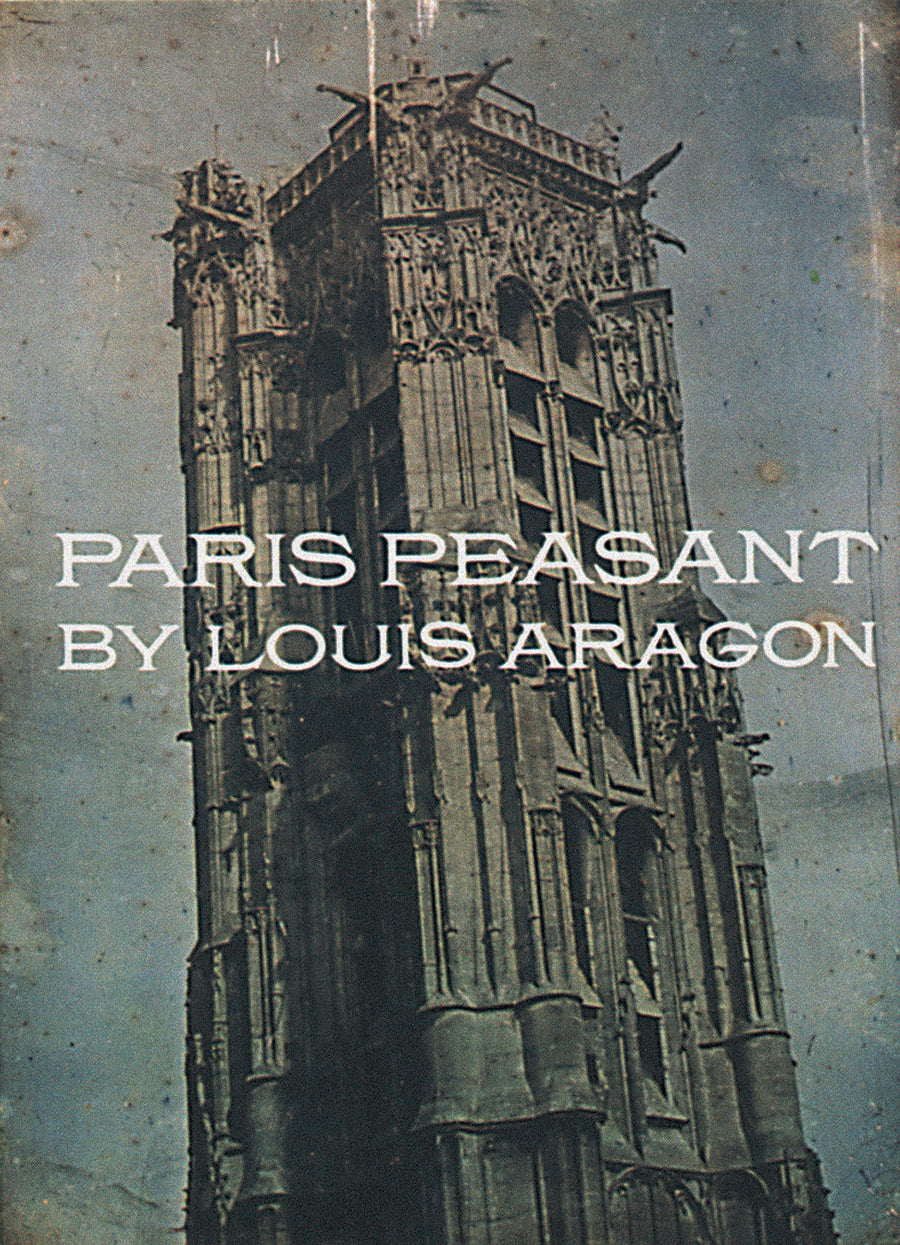
Paris Peasant by Louis Aragon
Regular price
$15.95
Sale
Paris Peasant (1926) is one of the central works of Surrealism, a work that helps define the movement itself; yet this is the first U.S. publication of Simon Watson Taylor’s authoritative translation, completed after consultations with the author.
Unconventional in form — Aragon self-consciously avoided any recognizable narration or character development — but fiercely lyrical, Paris Peasant is, in the author’s words, “a mythology of the modern.” The book uses the city of Paris as a framework, and Aragon interlaces his text with the city’s ephemera: café menus, maps, inscriptions on monuments, newspaper clippings, as well as the lives of its citizens. A detailed description of a Parisian passage, nineteenth-century precursor to the mini-mall, and another of the Buttes-Chaumont park, are the great set pieces within Aragon’s swirling prose of philosophy, dream, and satire.
“No one could have been a more astute detector of the unwonted in all its forms; no one else could have been carried away by such intoxicating reveries about a sort of secret life of the city.…”
— André Breton
“I was seeking… a new kind of novel that would break all the traditional rules governing the writing of fiction… a novel that the critics would be obliged to approach empty-handed.”
— Louis Aragon
Unconventional in form — Aragon self-consciously avoided any recognizable narration or character development — but fiercely lyrical, Paris Peasant is, in the author’s words, “a mythology of the modern.” The book uses the city of Paris as a framework, and Aragon interlaces his text with the city’s ephemera: café menus, maps, inscriptions on monuments, newspaper clippings, as well as the lives of its citizens. A detailed description of a Parisian passage, nineteenth-century precursor to the mini-mall, and another of the Buttes-Chaumont park, are the great set pieces within Aragon’s swirling prose of philosophy, dream, and satire.
“No one could have been a more astute detector of the unwonted in all its forms; no one else could have been carried away by such intoxicating reveries about a sort of secret life of the city.…”
— André Breton
“I was seeking… a new kind of novel that would break all the traditional rules governing the writing of fiction… a novel that the critics would be obliged to approach empty-handed.”
— Louis Aragon
